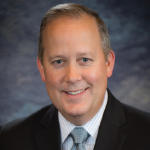Getting involved with your state society offers many benefits, from personal pride and group engagement, to “promoting good ideas, as well as stopping bad ideas from becoming laws that can harm your patients,” says Robert Levin, MD, immediate past president of the Florida Society of Rheumatology (FSR). That’s why he has been involved in leadership activities with the FSR for the past eight years and previously participated as a society member for 15 years.
Advance Education
Another reason Dr. Levin remains active in the FSR is its annual meeting, with continuing education he describes as “top-flight.” This four-day meeting includes national and international faculty, and is attended by more than 500 rheumatologists, rheumatology allied health professionals and commercial sponsors.
In his recent role as society president, Dr. Levin helped plan and run the meeting, which he describes as a very rewarding experience, both personally and professionally.
Advocate on the Frontline
For L. Manuela Marinescu, MD, a sense of accomplishment in advocacy is a key personal driver in her ongoing participation with the New York State Rheumatology Society (NYSRS).
Earlier this year, she participated in lobbying at the state level for mid-year formulary switch legislation. “One of the benefits and unique aspects of working at the state level is the ability to see more timely success stories,” she shares.
Much of the state legislative work she has been involved in through the NYSRS deals with private payer policies that affect nearly all practicing rheumatologists, as well as their patients. “Clearly any gains on the legislative front will be felt throughout the rheumatology community.”
Previous advocacy work led by this society has supported the passage of step therapy reform legislation “that provided expedited means for patients trying to access specialty medications to over-ride burdensome fail-first policies employed by insurers,” Dr. Marinescu says. “We have also seen the passage of a biosimilar substitution law that mandates reasonable notification to the provider.”
Make Time in Your State
Dr. Levin shares pride in seeing the impact of society involvement in Florida on the legislative front to support fellow physicians in navigating the challenges of daily practice.
He says the FSR has been successful in lobbying efforts and making a strong presence at Florida’s capitol through lobby days and personal visits to share insights on rheumatology practice. Last year, Dr. Levin served on a panel at the capitol for a House subcommittee addressing legislation regarding pharmacy benefit managers.


